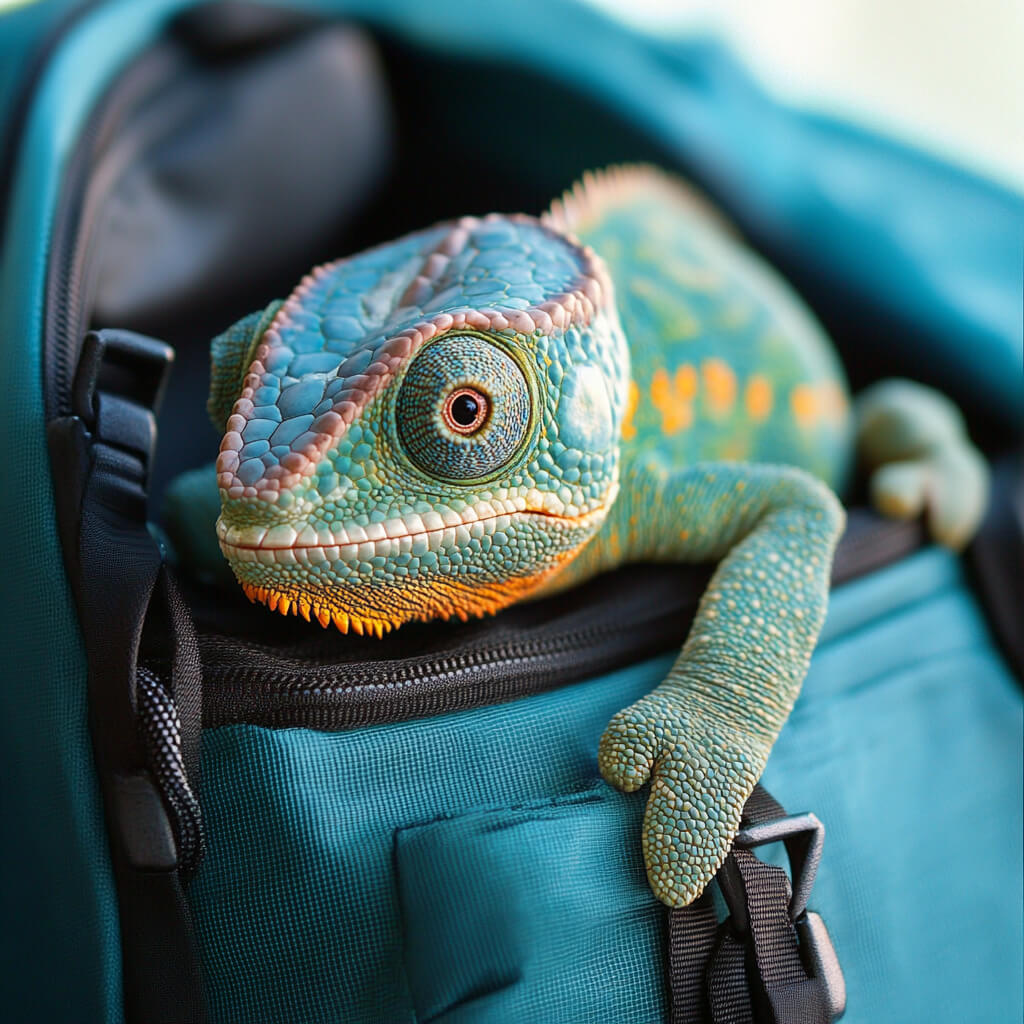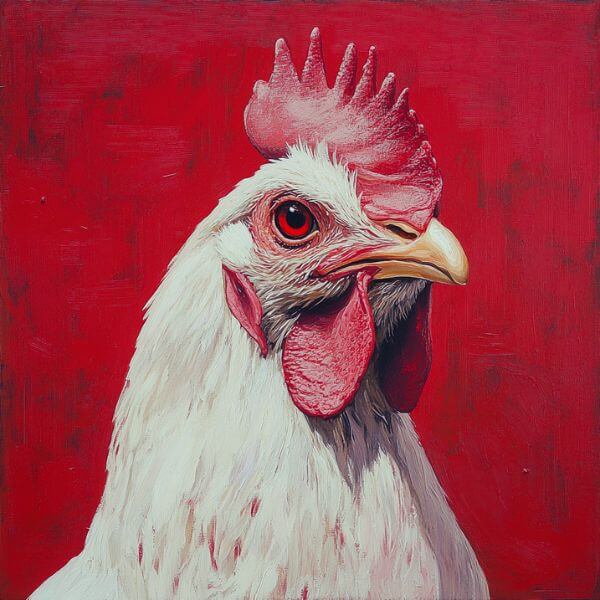Well, in general, yes. Bananas are safe for chameleons to eat.
Here are some tips to take note:
- Bananas are high in sugar and not a natural part of a chameleon’s diet
- If offered, it should be in very small amounts and infrequently
- There are potential risks, including digestive issues and choking hazards
For safe feeding practices, remember:
- Prioritize a diet of insects and appropriate leafy greens
- Offer fruit, including bananas, only as an occasional treat
- Always cut fruit into small, manageable pieces
Maintaining a balanced diet is crucial for your chameleon’s health.
While it might be tempting to share your banana with your colorful friend, it’s best to stick to foods that closely mimic their natural diet.
Understanding chameleon diet
Before we dive deeper into the banana question, it’s crucial to understand what chameleons typically eat.
Suitable foods for chameleons
Chameleons are primarily insectivores, meaning their diet mainly consists of insects. Here’s a quick look at their preferred menu:
| Food Type | Examples | Frequency |
| Insects | Crickets, roaches, flies | Daily |
| Worms | Mealworms, superworms | 2-3 times a week |
| Leafy greens | Collard greens, mustard greens | Occasional |
| Fruits | Various (we’ll discuss this!) | Very occasional |
Chameleon nutrition requirements
Chameleons need a balanced diet to thrive. Their nutritional needs include:
- Protein (from insects)
- Calcium (crucial for bone health)
- Vitamins A and D3
- Hydration (often from water droplets on leaves)
Fruits in a chameleon’s diet
While fruits aren’t a staple in a chameleon’s diet, they can occasionally be offered as treats.
But not all fruits are created equal when it comes to chameleon health.
Banana nutrition: What’s inside?
Now, let’s peel back the layers on banana nutrition.
Nutritional value of bananas
Bananas are packed with nutrients, but are they suitable for chameleons? Here’s a breakdown:
| Nutrient | Amount per 100g | Benefit for Chameleons |
| Potassium | 358 mg | Supports muscle function |
| Vitamin C | 8.7 mg | Boosts immune system |
| Vitamin B6 | 0.4 mg | Aids in metabolism |
| Fiber | 2.6 g | Helps digestion |
Sugar content in Bananas
One concern with bananas is their sugar content.
A medium banana contains about 14 grams of sugar.
This high sugar content can be problematic for chameleons if consumed in large amounts or too frequently.
Vitamins and minerals in bananas
While bananas offer some beneficial vitamins and minerals, it’s important to note that chameleons have different nutritional needs compared to humans.
What’s healthy for us might not be ideal for them.
Feeding chameleons fruit: Best practices
If you decide to offer fruit to your chameleon, here are some guidelines to follow.
Safe fruits for chameleons
While bananas are the focus here, it’s good to know other safe fruit options for chameleons:
- Apples (seedless)
- Berries (strawberries, blueberries)
- Melons (in small amounts)
- Papaya (without seeds)
How often to feed chameleons fruit
Fruit should be an occasional treat, not a regular part of a chameleon’s diet. A good rule of thumb is:
Offer fruit no more than once every 2-3 weeks, and in very small amounts.
Preparing fruit for chameleons
When offering fruit, including bananas, to your chameleon:
- Wash the fruit thoroughly
- Remove any seeds or pits
- Cut into small, manageable pieces
- Offer only a small amount (think pea-sized for a medium chameleon)
Potential risks of bananas for chameleons
While bananas aren’t toxic to chameleons, there are some risks to consider.
Digestive issues in chameleons
Chameleons have delicate digestive systems adapted for insect consumption.
Introducing new foods, especially sugary ones like bananas, can potentially cause digestive upset.
High sugar content concerns
The high sugar content in bananas can lead to:
- Obesity
- Dental problems
- Potential metabolic issues
Potential choking hazards
Bananas are soft, but large pieces can still pose a choking risk. Always cut fruit into appropriately sized pieces for your chameleon.
FAQs
Let’s address some common questions about chameleons and bananas.
How much banana can a chameleon eat?
If offering banana, stick to a very small amount – no more than a pea-sized piece for a medium-sized chameleon.
How often can chameleons have bananas?
Bananas should be an occasional treat, offered no more than once every 2-3 weeks, if at all.
Do all chameleon species react the same to bananas?
Different chameleon species may have varying tolerances to fruit. Always introduce new foods slowly and observe your chameleon’s reaction.
What are good fruit alternatives to bananas for chameleons?
Some safer fruit options include small amounts of berries or melon. However, remember that insects should make up the bulk of their diet.
What signs indicate a chameleon shouldn’t eat bananas?
Watch for signs of digestive upset like diarrhea, lethargy, or loss of appetite after introducing any new food, including bananas.
Conclusion: Can chameleons eat banana?
In conclusion, while chameleons can technically eat small amounts of banana occasionally, it’s not an ideal food for them.
Your chameleon will thank you with vibrant colors and good health!







Leave a Reply